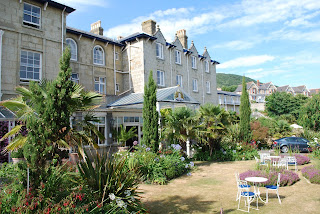The debate
begins as follows: actions may be good in themselves (e.g. giving help to the
poor), but they may be performed for purely selfish reasons; such as avoiding
tax, improving our “image”, or even increasing our chances of going to heaven.
Do these dubious motives invalidate the moral character of the deeds
themselves? Or does an action remain good in itself, whatever the character and
motives of the doer? (E.g. Al Capone was always very generous in giving aid to
the poor of Chicago, especially during the Depression. To a mediaeval thinker,
this would be counted in his favour when before Divine judgement)
Can an action be well-intentioned but bad
in its consequences? E.g. giving money to a beggar, who may spend it on drugs
or booze; or to a charity which may be fraudulent. We are often warned against
irresponsible donations!
(Jesus specifically told us to give our wealth
to the poor, and denounced the rich. In mediaeval Catholic theology, performing
good deeds would definitely improve your chances of going to heaven. In the
morality play “Everyman” the central character is setting out on a journey
(i.e. he’s dying), but “Good deeds” will accompany him, whereas “property” is
revealed to be his greatest enemy. But early Protestant theologians
specifically denied that good deeds could bring you any closer to salvation).
As against
this, the ancient Greek philosophers, Plato, Aristotle and their successors,
were less concerned with good deeds than with the creation of moral character:
the virtuous man
“Virtue” = a
combination of courage, justice, temperance and intelligence. A virtuous man
could be relied upon to be truthful and honest, to act wisely and justly, to
avoid corruption and self-indulgence, and to have the courage to behave
properly under pressure. This would be more important than good deeds (in any
case, we would expect a virtuous man to perform good deeds). Such a
man could be called magnanimous: “great-souled”
It would
appear that the magnanimous man is in a position of power and authority. It
would be difficult for a slave to behave like this.
The ancient
concept of “virtue” was rediscovered in the Renaissance and revived by radical
Jacobins in the French Revolution, where it appeared by mean a combination of
patriotism and frugal living. In Shakespeare’s “Julius Caesar”, Brutus shows
“virtue” when he kills his friend and benefactor for the good of the state. By
comparison, Dante saw Brutus as the arch-traitor, almost as wicked as Judas
Iscariot.
David’s paintings illustrate “virtue” as understood by
the French revolutionaries, by portraying two episodes from the legendary early
history of Rome.
In the
first, the consul Brutus (ancestor of Caesar’s killer) receives the bodies of
his sons, who have been executed for plotting to betray the Republic. The women
weep, but Brutus deliberately shows no reaction at all.
In the
second, “The oath of the Horatii”, the three sons of Horatius are about to go
forth to kill Rome’s enemies. Again, the women are weeping: they are the
sisters of the three Horatii, and the men to be killed are their husbands! In
both these cases, “virtue” and patriotism are portrayed as being more important
even than family.
Aristotle’s
concept of moderation is quite different from Christian humility: helpless
without divine grace – a concept unknown in the classical Greek world.
Aristotle saw moderation as having a realistic view of your abilities:
pretending you’re worse than you are is just as foolish as vainglorious
boasting.
The British
public schools, from the days of Thomas Arnold’s Rugby (and all the masters
were of course educated in the classical writers!) saw their role as not so
much teaching knowledge and skills as building character: creating the ideal of
the Christian Gentleman: an up-to-date version of Aristotle’s “virtuous
man”; and a fit type to go out and rule the empire, hopefully in a magnanimous
fashion (which they did!)
















